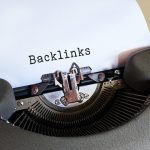
From Pandora Papers to petrol – why we should be grateful to our journalists
In the modern world of social media, the traditional media appears fair game for the masses, probably more so than ever.
In the past week or so media bashing has been more prevalent than ever before, as many of the public have blamed newspapers and traditional broadcasters for whipping the nation into a frenzy and causing the petrol shortage.
This blaming of the media is nothing new, it’s always existed, and journalists are never popular, generally following politicians as the most despised profession when surveyed by the public.
However, journalism has a right to stand up for itself and to fight its corner more than ever in the wake of the petrol crisis.
The purpose of the media is to report independently on what is happening. It is not to make up lies and then watch the country fall into chaos.
Many of the commentators using the relatively recent medium of social media need to understand that if publications make up complete lies they can and often will end up in legal trouble, and hauled before the courts. There are reams of legal requirements which stories have to pass before they are aired to the public. These safeguards means that the majority of journalists act within the law.
With the petrol shortage story, a confidential, internal document was leaked which mentioned a lorry driver shortage, which could affect deliveries to a minority of BP forecourts.
Anyone who has been to a supermarket in recent months will know that we have a shortage of drivers, therefore it probably won’t surprise many that the distribution of fuel could be affected too.
The media legitimately published the news on the leaked document. However, then it was a case of how the public acted. Many took the decision to rush out and jam the forecourts.
No where did the traditional media say rush out, any more than they told us of a toilet roll shortage last year. That was the actions of some members of the public.
The alternative, some would be to say that if the media had not reported the BP situation they would have been fiercely criticised for that too. It’s a lose- lose.
The media has revealed in recent days about the way in which many extraordinarily wealthy people are obtaining their fortunes. It is something making us question the rich and powerful.
An open media is the hallmark of a free society and when dictatorships emerge the first thing they generally do is to try to take control the media.
Is this what some of the British public would prefer?
Of course, the media is not perfect- like all walks of life, there are good and bad and what makes the news and how it is reported by some outlets is open to debate.
However, there’s plenty of places to look for the news that interests you.
Rather than bemoan the work of journalists, most who are diligent seekers of quality and truth, and some who risk life and limb to uncover corruption, should we not thank our lucky stars to be in such a society that hold politicians and wealthy business people to task?
We think many in North Korea would make their opinion clear if they could.

